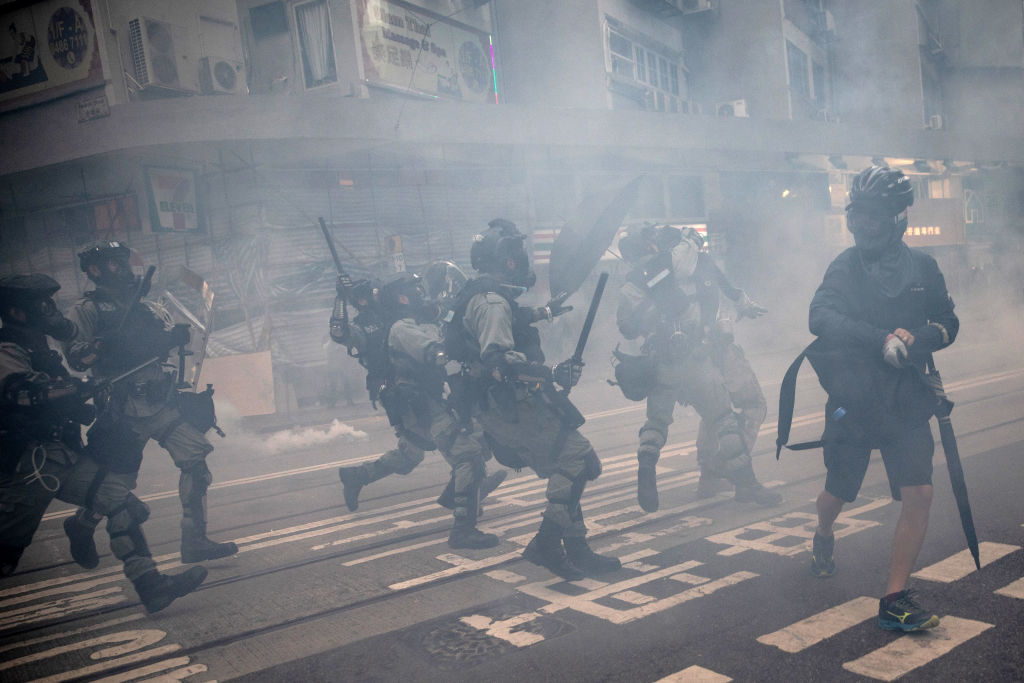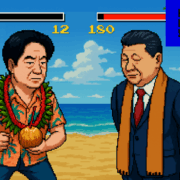Hong Kong police engage in a Dark Ages hunt for exiles

Hong Kong’s national security police celebrated the third anniversary of the draconian national security law by issuing arrest warrants for eight exiled activists, two of whom are in Australia. A HK$1 million bounty is on offer for each of them.
This isn’t a modern-day reward to capture violent criminals but a Dark Ages hunt for those who dare question and challenge Beijing’s authorities.
The Chinese government has always gone after those who express dissenting views, even if they are overseas. Although threats don’t always silence pro-democracy fighters, many choose to disappear from public view or disengage from politics in fear of retribution. Democratic countries should provide an environment for persecuted communities to express their peaceful political views that is safe from the terrorisation of a foreign government.
The arrest warrants are an act of intimidation of democracy activists whom the Chinese state is monitoring even after they have escaped its authoritarian rule. The efforts to silence them will follow the activists wherever they are.
The bounties are also a warning to democratic states that the Chinese government will not hesitate to reach into their sovereign legal territory—disproving the flimsy argument that China’s concern is with internal issues. The party-state will go to extreme lengths, including engaging international cooperation as a member of Interpol, to bring these fugitives back. It is a reminder that we are operating under very different systems of government and values. And while Australia’s objective is not to change China’s political system, nor should our ambition be limited to engagement through complicit silence.
Of the eight self-exiled activists named, two reside in Australia. Ted Hui is a former Hong Kong legislative councillor who was sentenced in absentia to three and a half years in jail for taking part in the 2019 protests. Kevin Yam is a lawyer and activist who has been increasingly vocal in lobbying the Australian government on Hong Kong immigration and human rights issues. He is also an Australian citizen.
Australia must ensure that democracy activists are protected and can continue to express their political views freely. Some have already suffered reprisals in Australia—for example, when Hui was reportedly assaulted at a restaurant in Sydney. Vicky Xu, a long-time ASPI analyst and fellow, has been harassed, targeted and intimidated in person in Australia and online for being critical of the Chinese government’s Xinjiang policies.
The Chinese government’s rampant efforts to silence overseas political dissent cannot be allowed to continue. For a country such as Australia not to vigorously oppose this intimidation amounts to aiding the erosion of human rights and democratic values.
Many people who have fled the Chinese state know that the government can still reach them regardless of where they are. The Hong Kong national security law applies to people outside of the city, including those ‘who are not permanent residents of Hong Kong’. Yam, who described himself last year as an ‘insignificant person’ who may not be impacted by the law, said: ‘You never know how the law will be enforced and where the red line is drawn.’
Beijing’s worldwide network of ‘police stations’ uncovered earlier this year is one part of the transnational repression campaign that is silencing dissidents or pressuring them to return to China. Surveillance cameras with exploitable programs operated by Chinese companies linked to the government are installed in countless public spaces, including in sensitive locations of departments and agencies in democratic countries. As well as posing national security risks to the country in question, they can also be used to track dissidents.
The intimidation sometimes becomes public and physical, as when a Chinese diplomat attacked a Hong Kong protester on British soil.
More broadly, persecuted communities consisting of everyday citizens must be in no doubt that they are supported and protected. Foreign Minister Penny Wong’s timely response specifically on Yam and Hui is a welcome first step in articulating the government’s longstanding concerns about the Hong Kong national security law. She said: ‘Australia has a view about freedom of expression. We have a view about people’s right to express their political views peacefully. And people in Australia who do so in accordance with our laws will be supported. We will support those in Australia who exercise these rights.’
But Australia’s official reaction needs to go beyond being ‘deeply disappointed’ in the issuing of warrants. The government should continue to express in the strongest terms its support for Yam and Hui and call the Chinese government’s behaviour out for what it is: an egregious attempt to impose its censorship abroad, in contravention of Australia’s democratic values, on Australian soil.
This is necessary to maintain a trusting relationship between these communities and the government. Any sense that Australia is prepared to blunt its response to avoid creating bumps in the road of the diplomatic relationship would taint our reputation and create distrust among persecuted communities. A strong Australian response to Chinese government intimidation boosts the faith of emigrants who have placed their freedom in the hands of the Australian government and who reasonably expect the steadfast defence of universal human rights, including the right to freedom of opinion and expression.
Ultimately, a response by the Australian government to the issuing of arrest warrants for pro-democracy activists is a public display of its commitment to Australian values. Despite the resets, re-engagements, stabilisation and thaws in the relationship with China, this incident is a stark reminder that Beijing is operating with values that are fundamentally different to those of democracies. Speaking out and condemning these arrest warrants is a stand against human rights abuses and the erosion of democracy in Hong Kong. It’s about upholding our own values.
In response to his sentencing in 2022, Hui said, ‘Since I am in a free country … it [the sentence] won’t harm my personal freedom or reputation, nor my international lobbying work.’ Australia must not destroy the trust that those who are willing to fight for democracy and who have been displaced had when they sought freedom and protection in Australia. That would be a destruction not just of individual trust but of our national integrity. Taking a stand and calling out unacceptable behaviour by the Chinese government is one step in building this trust, and a necessary step for Australian democracy.

